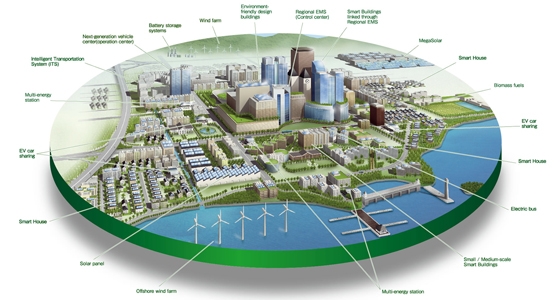The Smart Cities industry, driven by dynamic digital and internet connected devices, along with strong integration between sub-systems, is projected to be worth over $400 billion by 2020, according to experts.
While this implies better living for the rapidly-growing urban population, it also brings forth the need for the cities to be equipped to meet the challenges related to digital security and capacity building. It is estimated that more than 70 per cent of world population will be living in cities by 2030. This presents immense challenges in terms of effectively utilizing infrastructure, resources and calls for better sustainability.
Smart cities will have intelligent exchange of information between various sub-systems, thereby translating into services for the benefit of people- ranging from public health, transport to utilities and other services.
People are considered the key element of smart cities and it will be equally important to communicate with people, maintain strong integration between various sub-systems in the government and private sector. To gain the most out of smart cities initiative one need to ensure communication, cooperation and integration among sub-systems and implement the initiatives in partnership between government and private sector.
Potential security and privacy threats must also be addressed by cities as they make smart use of technology to enhance quality of life.
By 2020, it is estimated that more than 50 billion intelligent devices will be connected to the Internet. This proliferation will not only change the way technology is used and bring a cultural shift in business innovations, it will also necessitate that we are well prepared to effectively deal with potential security threats.
Smart City is not only a matter of apps and big data – sustain engaging life & places – is the correct and comprehensive approach, in order to achieve a tangible lifestyle improvement integrating people, things and places becomes a must.
ifpinfo
20 November























































